Master study program
MASTER STUDY PROGRAM
Master study program
There are seven specializations available in our master’s study program Electronics and communication
- Communication Systems and Networks
- Electronics
- Media and Signal Processing
- Mobil Communications
- Photonics
- Radio Communications and Systems
- Technology of the Internet of Things
Compulsory subjects of given specialization go along with optional subjects, so you have flexibility in terms of your student profile.
Detailed information how to apply to be found at the faculty web.
Become an expert in tech of the future!
Master study program specializations
Pick a specialization:
Electronics
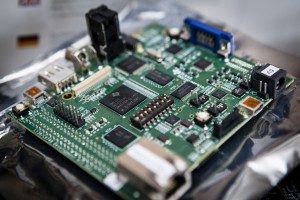 Specialization in microelectronics, nanoelectronics and integrated optics. Practical knowledge of methodology of design, realization and verification of electronic components and complex electronic systems, principles of analog and digital integrated circuits, sensors, microsystems and actuators. The graduate will find work in all areas of applied electronics.
Specialization in microelectronics, nanoelectronics and integrated optics. Practical knowledge of methodology of design, realization and verification of electronic components and complex electronic systems, principles of analog and digital integrated circuits, sensors, microsystems and actuators. The graduate will find work in all areas of applied electronics.
Media and Signal processing
Specialized in the acquisition, processing and reproduction of audiovisual signals. Practical knowledge in the field of design and measurement in acoustics, image and sound techniques and orientation on modern methods of processing, compression and reconstruction of image, sound and other signals. The specialization as well on human perception, as recipient of audiovisual information. Graduates will find employment in a wide range of areas, from television and radio, AV technology and acoustics, through automotive to special biomedical applications.
Photonics
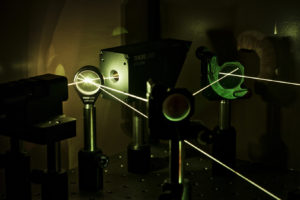 Specialization in photonics, lasers, fiber and integrated optics, optical networks, optical transmissions, processing and reconstruction of optical signals. Practical knowledge of design and advanced measurement techniques of planar integrated optics, optical sources, fiber optic systems, optical communication infrastructures, hyperspectral systems, and image photonics including imaging and scanning systems. The graduate will find application in the field of communication technology, sensors and others.
Specialization in photonics, lasers, fiber and integrated optics, optical networks, optical transmissions, processing and reconstruction of optical signals. Practical knowledge of design and advanced measurement techniques of planar integrated optics, optical sources, fiber optic systems, optical communication infrastructures, hyperspectral systems, and image photonics including imaging and scanning systems. The graduate will find application in the field of communication technology, sensors and others.
Technology of Internet of Things
Specialization integrates knowledge from electronics (design of systems including sensors) with knowledge of communication technology, especially wireless technologies (sensor networks) within Internet of Things – IoT. Students will learn not only to design components, but also to connect and integrate them to large networks. Graduates will find work in intelligent electronic systems, design and implementation of applications for smart home, city and industry.
Communication networks and Internet
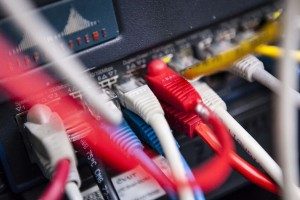 The specialization focuses of communication networks and the Internet as complex systems forming an integral part of the field of information and communication technologies (ICT), while respecting specific features and common features of telecommunication, mobile, computer and industrial networks, the Internet, Internet, access networks and data center infrastructure The special attention is also paid to fully optical networks, quality of service, cyber security and diagnostics, and graduates are well-established with electronic communications network operators, technology suppliers and system solutions, in project and development departments of ICT companies.
The specialization focuses of communication networks and the Internet as complex systems forming an integral part of the field of information and communication technologies (ICT), while respecting specific features and common features of telecommunication, mobile, computer and industrial networks, the Internet, Internet, access networks and data center infrastructure The special attention is also paid to fully optical networks, quality of service, cyber security and diagnostics, and graduates are well-established with electronic communications network operators, technology suppliers and system solutions, in project and development departments of ICT companies.
Mobile communications
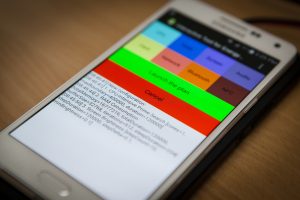 Mobile networks are the most dynamically developing part of the information and communication technologies (ICT) sector. This specialization provides both a system overview over the mobile cellular communications infrastructure, especially with regard to currently deployed and 5G and future technologies for mobile communications and wireless technologies as well as a detailed view of the radio access network including signal propagation, media access methods, channel coding (advanced modulation methods, anti-tampering, MIMO systems). Graduates will find work by mobile network operators, manufacturers and technology vendors, and wireless solutions.
Mobile networks are the most dynamically developing part of the information and communication technologies (ICT) sector. This specialization provides both a system overview over the mobile cellular communications infrastructure, especially with regard to currently deployed and 5G and future technologies for mobile communications and wireless technologies as well as a detailed view of the radio access network including signal propagation, media access methods, channel coding (advanced modulation methods, anti-tampering, MIMO systems). Graduates will find work by mobile network operators, manufacturers and technology vendors, and wireless solutions.
Radio Communications and Systems
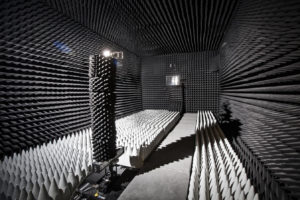 Specialization in the design, diagnostics and operation of all radio systems, subsystems and elements related to communication, navigation, radar or sensor technology. It provides a deep knowledge of wireless technologies, antennas, signal propagation, digital communication, microprocessors and microwave techniques. The field of study develops the ability to orientate in modern technologies and students’ autonomy in solving all technical problems they encounter in practice. Graduates have a wide range of applications in the rapidly expanding field of wireless communications and in a number of related fields.
Specialization in the design, diagnostics and operation of all radio systems, subsystems and elements related to communication, navigation, radar or sensor technology. It provides a deep knowledge of wireless technologies, antennas, signal propagation, digital communication, microprocessors and microwave techniques. The field of study develops the ability to orientate in modern technologies and students’ autonomy in solving all technical problems they encounter in practice. Graduates have a wide range of applications in the rapidly expanding field of wireless communications and in a number of related fields.
